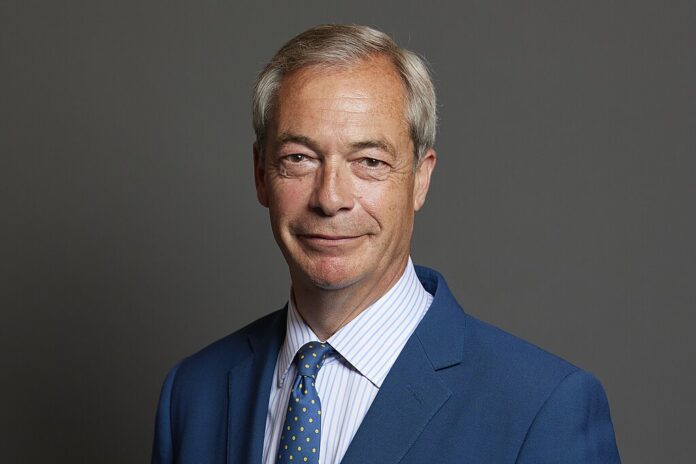Nigel Farage celebrates Reform UK’s surge as Labour and Conservatives grapple with sobering local election results
Nigel Farage basked in a moment of political triumph this week, as pyrotechnics lit up the night sky in celebration of Reform UK’s sensational local election breakthrough. On a stage dressed for victory, Farage smiled as fireworks burst overhead—while his rivals scrambled to make sense of the political earthquake that just struck England.
At the same time, both Prime Minister Keir Starmer and Conservative leader Kemi Badenoch were penning post-mortems, their tone markedly less festive. In stark terms, Badenoch called the Conservatives’ results a “bloodbath” in her piece for The Daily Telegraph, a brutal but honest assessment of the rout many in her party feared—and expected.
Badenoch claimed she was warned of this scenario when she campaigned for the Tory leadership. Her words acknowledged the damage, but also subtly framed it as a step in a long-term repair job. It was damage, she suggested, that had been inflicted long before she took the reins.
Sir Keir Starmer, writing in The Times, avoided such visceral language but struck a similarly sombre tone. “I get it,” he wrote, vowing not to rely on the “same old excuses” used by leaders past. He pointed to public fury over “uncontrolled immigration,” “sewage in rivers,” and “failing local services”—a tacit admission that Labour has yet to convince key voter blocs it can turn frustration into faith.
But while the two main parties scrambled for explanations and talked renewal, Reform UK simply celebrated.
Embed from Getty ImagesChris Mason, the BBC’s political editor, noted the significance plainly: “Nigel Farage arranged a fireworks display and a party. The prime minister and the Conservative leader wrote post-mortem articles.”
This wasn’t just a symbolic contrast. Reform UK didn’t just live up to the polling buzz—they beat expectations. The party’s sharp rise confirmed what many feared: the traditional political duopoly is under serious threat.
The numbers tell the story, but emotion is driving the shift. Senior Reform strategists say the sentiment powering their surge is betrayal—betrayal by both Labour and the Conservatives. That belief is drawing in disillusioned voters from across the spectrum, many of whom have long felt ignored or exploited by the political elite.
The immediate challenge now is twofold. For Labour and the Conservatives, it’s about how to respond—both to Reform and to their own failings. For Reform, the task is to prove they can govern, not just protest.
This isn’t the first time a “third force” has disrupted British politics. The Social Democratic Party in 1981, the 2010 Tory-Lib Dem coalition, and even the 2019 European elections all hinted at a new era. Yet in each case, the old order bounced back. After those 2019 elections, the Tories won a thumping general election majority just months later.
So caution is warranted. But so is recognition. Reform UK has broken through in a way that neither UKIP nor the Brexit Party quite managed. Their challenge to Westminster is real, and the big parties know it.
Looking ahead, the political fireworks are unlikely to fizzle out. Reform is already eyeing next year’s devolved elections in Scotland and Wales, confident that their anti-establishment message can resonate beyond England.
As Mason put it, politics is becoming “splintered and noisy,” and not just south of the border. With the SNP, Plaid Cymru, the Greens, and others preparing to enter the fray, the cacophony of political voices may only grow louder.
But for now, it is Nigel Farage and his team who are celebrating—not just with fireworks, but with the knowledge that, for the first time in years, they may have genuinely changed the rules of the game.
SKY NEWS
Labour peer Harriet Harman attributed Reform UK’s shock by-election win in Runcorn and Helsby to “shy” Reform voters in traditionally Labour areas. Reform’s Sarah Pochin defeated Labour’s Karen Shore by just six votes, overturning a 34.8% Labour majority from 2024. Harman admitted Labour underestimated the race and said she would have campaigned more had they known it would be so close. The by-election, the closest since 1945, followed Labour MP Mike Amesbury’s resignation after he assaulted a constituent. On the Electoral Dysfunction podcast, Harman noted Reform’s success reflects voter disillusionment and Farage’s effective messaging, even without policy delivery. Meanwhile, Labour struggles to communicate its achievements, like breakfast clubs and minimum wage rises, to a frustrated public. Reform also took eight councils and won two mayoralties in the local elections, signalling growing influence. Harman dismissed fears of party splits but warned that socially conservative “Blue Labour” MPs could press for tougher stances on issues like immigration.
THE GUARDIAN
The 3 May 2025 UK papers focused on the success of Reform UK, which gained significant ground in the local elections, including winning an MP from Labour in the Runcorn by-election and securing several local councils. Reform leader Nigel Farage heralded the results as the beginning of the end for the Conservative Party, claiming his hard-right populist movement was replacing them. Farage promised that Reform-run councils would block asylum seeker accommodations and dismantle equalities programmes.
The Guardian described it as a “sobering day” for Prime Minister Keir Starmer and Conservative leader Kemi Badenoch. Farage’s bold statements about Reform’s rise set the tone, with him positioning the party as the main challenger to both Labour and the Conservatives. While the results were seen as a major win for Reform, they underscored significant dissatisfaction with both major parties, highlighting the populist wave sweeping through parts of England and the increasing polarization in UK politics.
